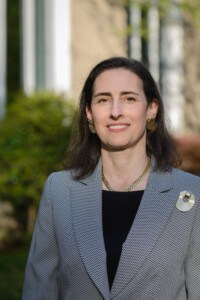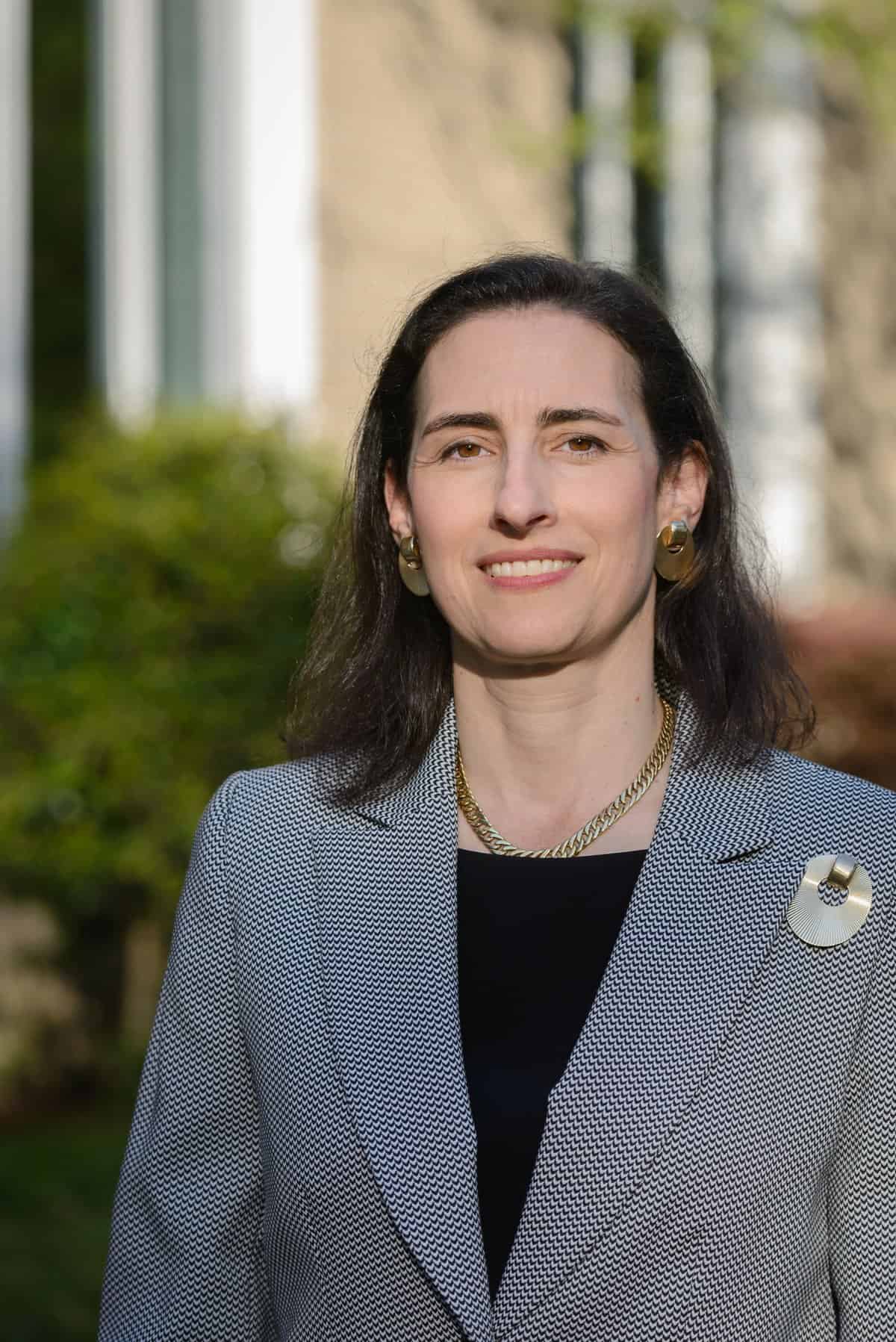
Elena Barr Baum
Two of the suitcases Elena Barr Baum will take with her to Israel when she travels there in July are pre-packed, and not her own.
They belong to the Holocaust Commission of the United Jewish Federation of Tidewater, and are filled with reproductions of mementos significant in the lives of two Holocaust survivors whose stories are featured in the Commission’s compelling educational program, What We Carry.
Baum, as director of the Holocaust Commission, has been invited to present a synopsis of the program to other Holocaust educators from around the world at the Ninth International Conference on Holocaust Education, July 7–10, at Yad Vashem in Jerusalem.
Established in 1953, Yad Vashem was designed to be the Jewish people’s living memorial to the Holocaust. Considered one of the must-see places to visit in Israel, Yad Vashem is a center for documentation, research, education and commemoration of the Holocaust.
“When you look at the list of presenters at this conference, it’s like a Who’s Who of Holocaust education,” says Baum. “When we found out in February that we had been invited to lead one of the 38 breakout sessions (and four of those are in Spanish), we were honored that the educational leadership of the most august Holocaust organization in the world had chosen What We Carry as something they wanted us to share with others.”
The two-and-a-half-year-old What We Carry program consists of four mini-documentaries featuring Tidewater Holocaust survivors who share their past experiences and their hopes for the future. As the film plays, images change from footage of the survivor speaking, to archival Holocaust era footage, and photos of the survivor during that time and afterward. An original musical composition plays in the background.
When presented in schools, for community groups, government agencies and at military installations, an educational component includes scripted, docent-added information, and the interactive display of the opened suitcases, with contents such as passports, a patch with a yellow Jewish star, even a doll, that can be touched and examined.
For the conference at Yad Vashem, Baum and her colleagues have created a Power Point presentation, will unpack the contents of the two What We Carry suitcases she’s bringing, and will show portions of the documentaries. Attendees will receive a DVD of the film’s trailer, information about the program, its talented filmmakers and the Holocaust Commission of the UJFT.
“When I went online to finish registering for the conference in early June, I saw that two of the 34 English breakout sessions were already booked,” Baum says. “One of those was What We Carry, which thrilled me.”
Traveling to Israel to present the program with Baum are film co-producer Janice Engel, and former Holocaust chairs and current Commission members, Mickey Held and Deb Segaloff.
“I went to this conference in 2004, and I was so moved—sitting with people from Japan, from China, from all over the world—at the level of concern, and of the great emphasis placed on teaching the Holocaust to future generations,” says Segaloff.
“The question repeatedly asked was how will we be as effective in teaching about the Holocaust without live witness—without our survivors, our righteous gentiles, our liberators? To develop What We Carry as a real answer to having an effective way to continue to bring survivors into the schools, so that people in our community should remember David Katz*, Hanns Loewenbach*, Kitty Saks and Dana Cohen, two or three generations from now, and to be able to share this with other communities around the world, is very exciting and should be a huge source of pride to our little Jewish community of 12,000 people,” says Segaloff.
Harry Graber, executive vice-president of the UJFT, says the invitation to present at Yad Vashem validates the hard work, creativity and resources that went into developing, promoting, and continuing to create new What We Carry documentaries, and the community’s continued support of the Federation and its Holocaust Commission.
“Our challenge is to carry on the memory of our survivors and other courageous members of our community who can testify to experiences they had during the Holocaust, and to share these very important lessons— through the Holocaust Commission’s educational programs—with this and future generations,” says Graber. “It is a tremendous honor for our community to have our efforts recognized by such a renowned organization as Yad Vashem.”
In addition to the thrill of sharing What We Carry with others at the Conference, Segaloff says the Tidewater representatives will be able to learn about other innovative and effective programs, hear from some of the world’s most renowned Holocaust educators in the world, and in turn, bring new ideas and concepts to share with Tidewater when they return.
Find out more about the Holocaust Commission of the UJFT, its mission, its programs, and how to help support it, at www.holocaustcommission.org. *Of blessed memory.
by Laine Mednick Rutherford

